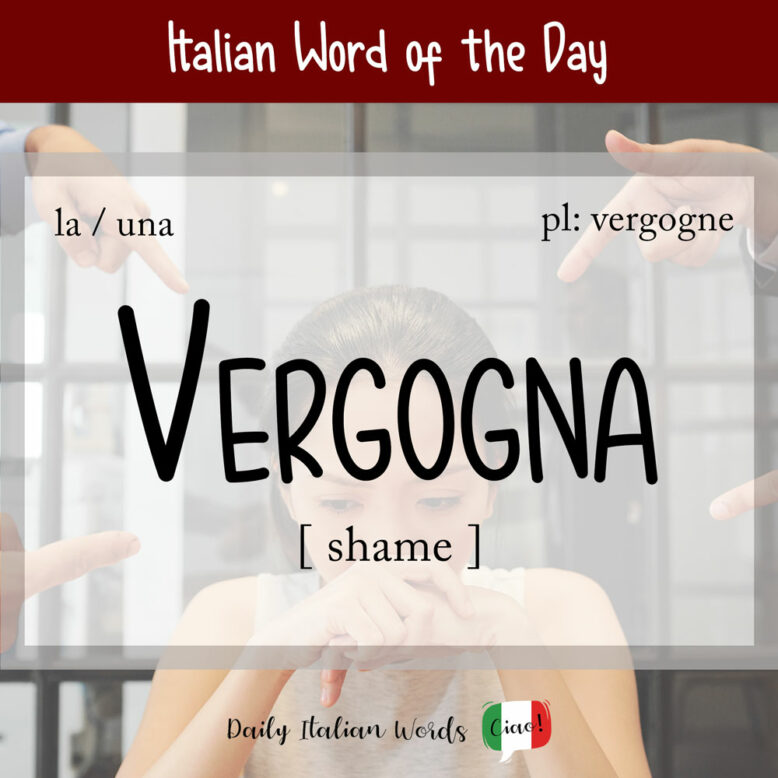Vergogna (feminine, plural: vergogne) is a very useful Italian noun that translates as shame, disgrace or embarrassment in English depending on the context.

Below are a few common verbs you’ll see is the company of vergogna:
- sentire / provare vergogna = to feel shame
- (non) conoscere la vergogna = to (not) have a sense of shame
- vincere la vergogna = to overcome one’s embarrassment
- arrossire di vergogna = to blush with shame
- sprofondare dalla vergogna = to sink through the floor
Non provi neanche un po’ di vergogna per quello che hai fatto?
Don’t you feel even a little bit ashamed for what you’ve done?
It comes from the reflexive verb vergognarsi which means to feel ashamed or embarrassed.

From this verb we get the adjective vergognoso (shameful, disgraceful), as well as the widely used expressions Vergogna! and Vergognati!, both of which correspond to the English expressions Shame on you! or You should be ashamed of yourself!
Non si dicono le bugie! Vergogna!
You shouldn’t tell lies! Shame on you!
Vergogna usually translates as disgrace when used with the verb essere (to be) and is preceded by the definite article la or the indefinite article una. It may be used to describe a person, an object or a situation that someone finds shockingly unacceptable.
Quel ragazzo è la vergogna della famiglia.
That boy is a disgrace to his family.
Quel nuovo grattacielo è una vera vergogna!
That new skyscraper is a real disgrace!
Another common exclamation you’ll often hear is Che vergogna! which means What a disgrace / embarrassment!
Vergogna frequently appears with the prepositions per (for, out of) and senza (without). Per vergogna means out of shame whereas senza vergogna means without shame or unashamedly.
Because vergogna is closely tied to the concepts of shame and disgrace, it shouldn’t be a surprise to learn that it has become a euphemistic expression for one’s private parts, though in this case, it is always used in its plural form vergogne.
Copriti le vergogne! Ti vedono tutti!
Cover your private parts! Everyone can see you!
Heather Broster is a graduate with honours in linguistics from the University of Western Ontario. She is an aspiring polyglot, proficient in English and Italian, as well as Japanese, Welsh, and French to varying degrees of fluency. Originally from Toronto, Heather has resided in various countries, notably Italy for a period of six years. Her primary focus lies in the fields of language acquisition, education, and bilingual instruction.


